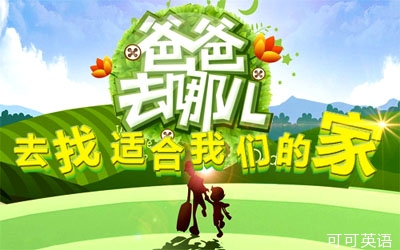【背景】
最近,《爸爸去哪儿》和《人生第一次》两部亲子剧的热播,再度引发了大家对于“溺爱”话题的讨论。父母们是否过渡溺爱了自己的儿女?孩子们又是否真的如人们所认为的那样脆弱?

【新闻】
我们来看一段相关的英文报道In a nation with a one-child population planning policy, it's understandable for parents to fret constantly over whether they are cosseting their offspring.
The concern has been brought into focus with the popularity of two hit reality TV series, Hunan TV's Dad! Where Are We Going? and Zhejiang TV's First Time In Life. In both, children as young as three are put under intense scrutiny.
In one episode of Dad!, the five-year-old daughter of former Olympic diving champion Tian Liang cries and hides behind her father when they arrive at a rural village.
在一个实行独生子女计划生育的国家,父母们不免总会为自己是否过度溺爱孩子的问题而焦虑。
近日,随着两档人气电视剧的热播,这一话题再度成为了人们讨论的焦点。在湖南卫视《爸爸去哪儿》和浙江卫视《人生第一次》这两档节目中,最小才三岁的孩子们接受了严格的考验。
在一集《爸爸去哪儿》中,前奥运跳水冠军田亮和他五岁的女儿刚到一个偏僻的农村,小女孩就大哭起来,藏到爸爸身后。
【讲解】
文章第一段中的cosset就是“溺爱”的意思,是一个动词,由其派生出的形容词cosseted,解释为“受宠爱的、被宠坏的”。可以用来表示“溺爱”的词还有pamper、spoil、coddle等,其中spoil常用于谚语Spare the rod and spoil the child,解释为“不打不成器”。
此外,文中的fret,解释为“苦恼、烦躁不安”,常用于结构fret about something或fret over something,意思是“为……而苦恼”。












